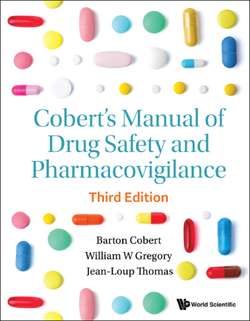Читать книгу Cobert's Manual Of Drug Safety And Pharmacovigilance (Third Edition) - William Gregory - Страница 48
На сайте Литреса книга снята с продажи.
Frequently Asked Questions
ОглавлениеQ: Why would anyone want to work in drug safety?
A: Good question. Once the decision is made by a healthcare professional to move out of the clinical world and into industrial/pharmaceutical medicine, it is noted that certain personality types tend to go to drug safety. Unlike the “glamour” of clinical research, where new and exciting drugs are tested, drug safety tends to have a different atmosphere, dealing with the problems of the new and exciting (and old and dull) drugs.
There is much more detective work and medical analysis in working hard to obtain all the clinical facts available, perform a defensible medical analysis, and come to a medically sound conclusion often based on incomplete (or even misleading) data. The work can be quite academic when one is working up a complex signal or risk evaluation/mitigation plan. And as always in medicine, one never has enough information. There is always one more test or examination one could do to get closer to the truth. Like the clinician, the drug safety worker is usually dealing with uncertainty and must still make rapid and often irreversible decisions. Yet given the data available, one must come to the medically proper and defensible conclusion and convey this in a cogent way to both medical and non-medical people. The work is challenging and fulfilling when done well.
The ethical issues come up when clear, compelling safety arguments calling for action are made and no action is forthcoming from management. This puts drug safety personnel in awkward and sometimes legally risky positions.
There is also much drama and excitement. Much can be routine, but the next e-mail or Tweet may bring a disaster with widespread consequences if the signal bears out. The adrenaline level rises and the “crisis” team mobilizes. The drug safety department is the emergency room of the company. Those who perform drug safety as a career are often passionate about it. Few decide at the outset of a pharmaceutical career that they want to “do side effects”. Rather, they want to discover new drugs or do clinical research or study the pharmacology of drugs. Many come into drug safety after trying other areas in the industry and discover they love it.
Q: Is there not an inherent conflict of interest in asking a company to police itself?
A: In a sense yes, especially when money is involved. Most regulated professions have some level of self-policing, including aviation, banking and finance, the food industry, medicine, and law. The results of self-policing have not always been happy. Thus, there must be some level of outside oversight to ensure that self-policing is done correctly. Finding the right balance is always the trick. In practice, there is far too much to do and oversee in the pharmaceutical industry to have total outside oversight from health agencies. Rather, practicalities force the system to police itself with regulations, periodic reports, monitoring, reviews, audits, and other mechanisms looking over the industry’s shoulder to “keep it honest”. In recent times, following terrible banking and investment scandals, there is a strong tendency toward risk aversion and the demand that there be more regulation and control “to prevent another (fill in your own crisis: Vioxx, AIG, Madoff, earthquake, etc.)”. Thus, we are likely to see more regulation and perhaps less risk-taking. Whether or not more regulation will lead to better outcomes (i.e., “safer” drugs) remains to be seen.
